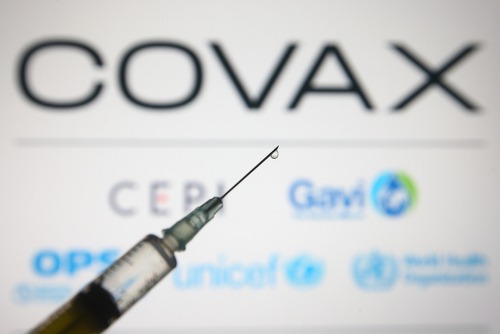
Partners in COVAX, a global collaborative effort to accelerate development, manufacturing and equitable access to COVID-19 vaccines, launched the COVAX Marketplace last week to match buyers with suppliers through a secure new platform and overcome short-term bottlenecks.
The Marketplace is a platform that will provide suppliers with the means to flag its needs and reallocate unused materials accordingly, with help from the Coalition for Epidemic Preparedness Innovations (CEPI). CEPI is one of the three organizations running COVAX, alongside Gavi, the Vaccine Alliance, and the World Health Organization (WHO), and will facilitate the Marketplace.
In this role, CEPI will also match offers with requests and connect those with potential, prioritizing these options based on certain criteria, such as whether a manufacturer has a COVAX advance purchase agreement in place. Dose volumes and delivery timings also will be considered, to guarantee the highly complex and cross-border reliant vaccine distribution system will continue to provide for COVAX.
“Vaccine manufacturers have described the ways in which shortages of critical supplies have limited the speed and scale at which vaccines can be produced, which means many vaccine production lines haven’t been operating at full capacity,” Dr. Richard Hatchett, CEPI CEO, said. “Optimizing the use of scarce resources that may otherwise be sitting idle – by matching buyers and sellers around the globe – could contribute to improving the global supply of vaccines through COVAX. The pandemic has led to extraordinary innovation in vaccine development and production, and the COVAX Marketplace is an example of how we must continue to look beyond business as usual to find pragmatic solutions to fixable problems – such as supply chain bottlenecks – so that we can urgently unlock more COVID-19 vaccine doses for COVAX.”
Other priorities for the Marketplace will include mobilizing idle stock of vaccines or candidates that fail before they can clear regulatory hurdles – potentially giving them new opportunities to help. Surplus stock also will be acquired from manufacturers with non-vaccine activities. According to CEPI, in the future the Marketplace may take on supplies for the production of other critical therapies or vaccines hurt by global supply shortages as well.
Initially, the new platform launches with somewhere between 10-15 participants. To flesh out potential further, though, the Marketplace is already hunting for additional vaccine manufacturers, contract development and manufacturing organizations and pharmaceutical companies not currently pursuing the production of COVID-19 vaccines.
It’s all about filling gaps in the current system and making it better equipped to deal with many issues exposed over the course of the pandemic.
“Today, over 3 billion doses of effective and safe vaccines have been made and administered,” Thomas Cueni, Director General of the International Federation of Pharmaceutical Manufacturers & Associations (IFPMA), said. “But to vaccinate the world’s adult population by the end of the year, we must achieve the estimated production of 11 billion doses of COVID-19 vaccines. To do this, it is essential to optimize production, as well as urgently increase dose sharing and remove trade barriers.”
One of the big barriers in this whole process, pointed to by Cueni, has been raw materials and components. Many vaccine manufacturing processes can involve cross-border supply chains involving more than 100 such components, and a delay or other problem at any step along the way can cause uncertainty.
Cueni gave the example of a bioreactor plastic bag, which will be one of the six categories on which the Marketplace will initially focus. Were suppliers to fail in one bag’s delivery, a whole production line of thousands of liters could be halted, leading to batch delays stretching weeks or even months.
“Speed is of the essence to achieve vaccine equity,” Cueni said. “This marketplace will hopefully make an important contribution towards the global endeavour of achieving the 11 billion doses target this year.”
That target is a sort of aspirational goal set by the World Trade Organization and is based on supply pipeline forecasts. In addition to bioreactor bags, the Marketplace’s initial focus for that pipeline will include single-use assemblies, cell culture media, filters, lipids, vials and stoppers. Each of these supplies has been identified as critical to global efforts.
“Industry from both developing and developed world have shown leadership in product development and large-scale manufacturing, resulting in more than 3 billion doses manufactured,” Sai Prasad, president of Developing Country Vaccine Manufacturers’ Network, said. “While this is a successful outcome for most infectious diseases, it is clearly not enough to address the global public health crisis caused by this pandemic…With the complexities involved with vaccine manufacturing requiring specialized human resources, facilities, raw materials, consumables etc., we need to enable the entire supply and distribution chain to rise up to this challenge.”
As an extension of COVAX, the Marketplace will be running as part of the vaccines focus of the Access to COVID-19 Tools (ACT) Accelerator. Its goal is speed in both the public and private spheres, working to output diagnostics, therapeutics, vaccines and to provide a health system connector. In this, it fits cleanly into CEPI’s plans for the future, which include compressing vaccine development timelines to 100 days, creating a universal COVID-19 and other Betacoronaviruses vaccine, and producing a variety of candidates for use against pathogens.




